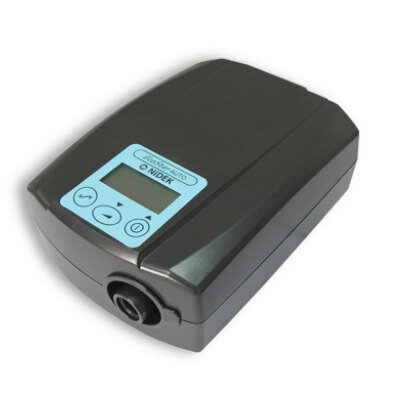POCT for Infectious Diseases Delivers Laboratory Equivalent Pathology Results
|
By HospiMedica International staff writers Posted on 30 May 2024 |

On-site pathology tests for infectious diseases in rural and remote locations can achieve the same level of reliability and accuracy as those conducted in hospital laboratories, a recent study suggests.
The study, conducted by researchers at Flinders University (Bedford Park, Australia), evaluated the effectiveness of on-site pathology testing, or Point-of-Care Testing (POCT), specifically for detecting the severe acute respiratory syndrome coronavirus 2 (SARS-CoV-2) in over 100 remote Aboriginal and Torres Strait Islander communities across Australia. In these areas, point-of-care testing is crucial for reaching patients who are otherwise isolated due to geographic, social, and cultural barriers. This is particularly vital given the high rates of infectious diseases like COVID-19 among the Aboriginal and Torres Strait Islander populations, where POCT offers cost-effective, accessible, and immediate diagnostic solutions.
The study focused on the analytical quality of the Aboriginal and Torres Strait Islander COVID-19 Point-of-Care (POC) Testing Program, initiated in April 2020. This program aimed to enhance the availability of rapid, molecular-based SARS-CoV-2 detection in remote communities. Extending to 105 communities, the program effectively helped prevent a significant number of COVID-19 cases, thereby saving considerable costs for the healthcare system. The quality of COVID-19 testing within the program was supported through comprehensive operator training and the implementation of a customized External Quality Assessment (EQA) program. This EQA program was developed in collaboration with the Royal College of Pathologists of Australasia Quality Assurance Programs (RCPAQAP).
“Our study demonstrates that when point-of-care testing models are effectively established and managed, the quality of pathology results can be equivalent to laboratory tests, and the benefits for patients are overwhelmingly evident,” said Dr Susan Matthews from the International Centre for Point-of-Care Testing at Flinders University. “The COVID-19 program has now been expanded to include testing for Influenza A and B, and respiratory syncytial virus (RSV), as well as SARS-CoV-2 and has the potential to stem acute and infectious diseases in rural and remote areas whilst saving the government billions of dollars in health costs.” The study's findings were published in the journal Diagnostics on May 26, 2024.
Related Links:
Flinders University
Latest Point of Care News
Channels
Critical Care
view channel
Ingestible Smart Capsule for Chemical Sensing in the Gut Moves Closer to Market
Intestinal gases are associated with several health conditions, including colon cancer, irritable bowel syndrome, and inflammatory bowel disease, and they have the potential to serve as crucial biomarkers... Read moreNovel Cannula Delivery System Enables Targeted Delivery of Imaging Agents and Drugs
Multiphoton microscopy has become an invaluable tool in neuroscience, allowing researchers to observe brain activity in real time with high-resolution imaging. A crucial aspect of many multiphoton microscopy... Read more
Novel Intrabronchial Method Delivers Cell Therapies in Critically Ill Patients on External Lung Support
Until now, administering cell therapies to patients on extracorporeal membrane oxygenation (ECMO)—a life-support system typically used for severe lung failure—has been nearly impossible.... Read moreSurgical Techniques
view channel
Intravascular Imaging for Guiding Stent Implantation Ensures Safer Stenting Procedures
Patients diagnosed with coronary artery disease, which is caused by plaque accumulation within the arteries leading to chest pain, shortness of breath, and potential heart attacks, frequently undergo percutaneous... Read more
World's First AI Surgical Guidance Platform Allows Surgeons to Measure Success in Real-Time
Surgeons have always faced challenges in measuring their progress toward surgical goals during procedures. Traditionally, obtaining measurements required stepping out of the sterile environment to perform... Read morePatient Care
view channel
Portable Biosensor Platform to Reduce Hospital-Acquired Infections
Approximately 4 million patients in the European Union acquire healthcare-associated infections (HAIs) or nosocomial infections each year, with around 37,000 deaths directly resulting from these infections,... Read moreFirst-Of-Its-Kind Portable Germicidal Light Technology Disinfects High-Touch Clinical Surfaces in Seconds
Reducing healthcare-acquired infections (HAIs) remains a pressing issue within global healthcare systems. In the United States alone, 1.7 million patients contract HAIs annually, leading to approximately... Read more
Surgical Capacity Optimization Solution Helps Hospitals Boost OR Utilization
An innovative solution has the capability to transform surgical capacity utilization by targeting the root cause of surgical block time inefficiencies. Fujitsu Limited’s (Tokyo, Japan) Surgical Capacity... Read more
Game-Changing Innovation in Surgical Instrument Sterilization Significantly Improves OR Throughput
A groundbreaking innovation enables hospitals to significantly improve instrument processing time and throughput in operating rooms (ORs) and sterile processing departments. Turbett Surgical, Inc.... Read moreHealth IT
view channel
Printable Molecule-Selective Nanoparticles Enable Mass Production of Wearable Biosensors
The future of medicine is likely to focus on the personalization of healthcare—understanding exactly what an individual requires and delivering the appropriate combination of nutrients, metabolites, and... Read more
Smartwatches Could Detect Congestive Heart Failure
Diagnosing congestive heart failure (CHF) typically requires expensive and time-consuming imaging techniques like echocardiography, also known as cardiac ultrasound. Previously, detecting CHF by analyzing... Read moreBusiness
view channel
Expanded Collaboration to Transform OR Technology Through AI and Automation
The expansion of an existing collaboration between three leading companies aims to develop artificial intelligence (AI)-driven solutions for smart operating rooms with sophisticated monitoring and automation.... Read more


















